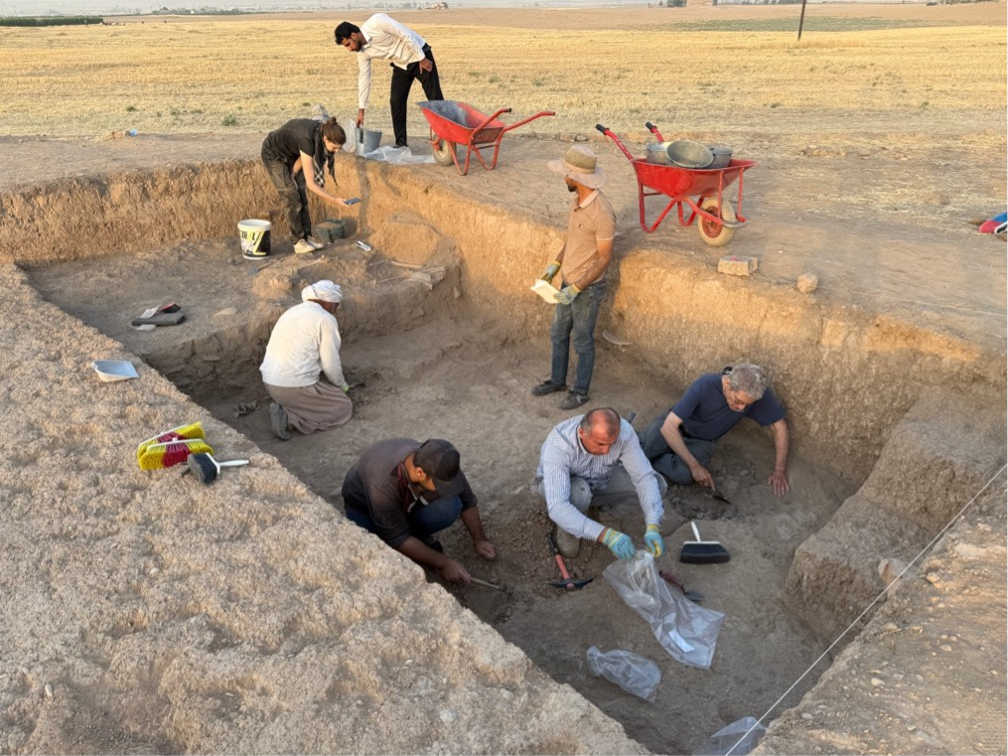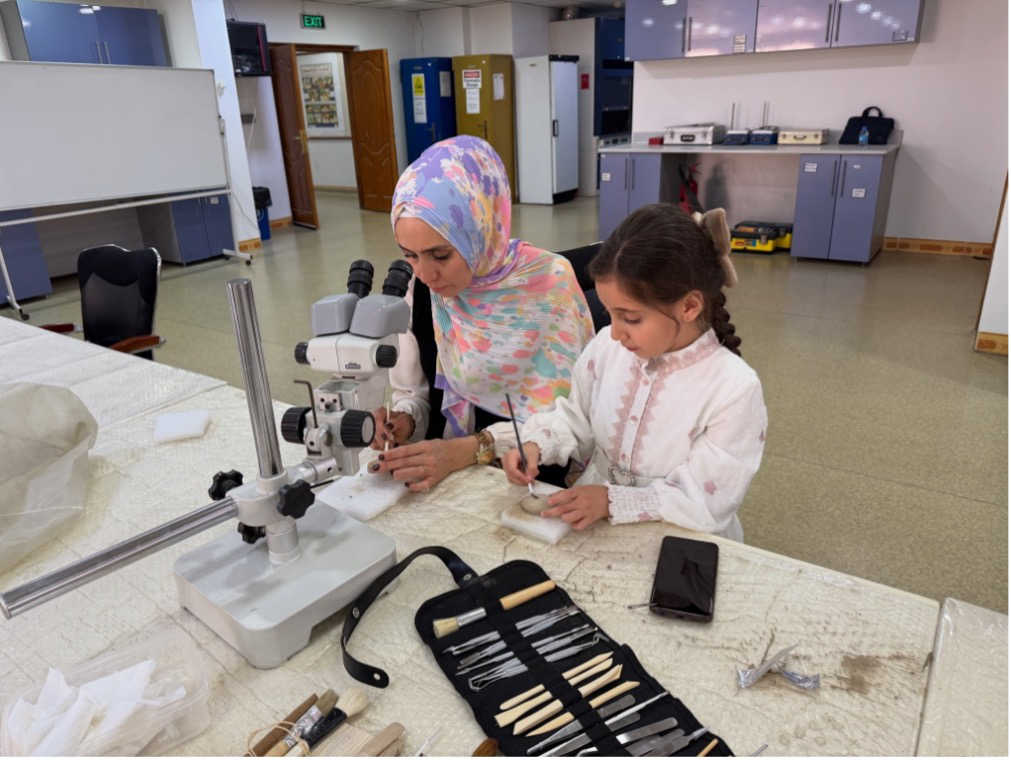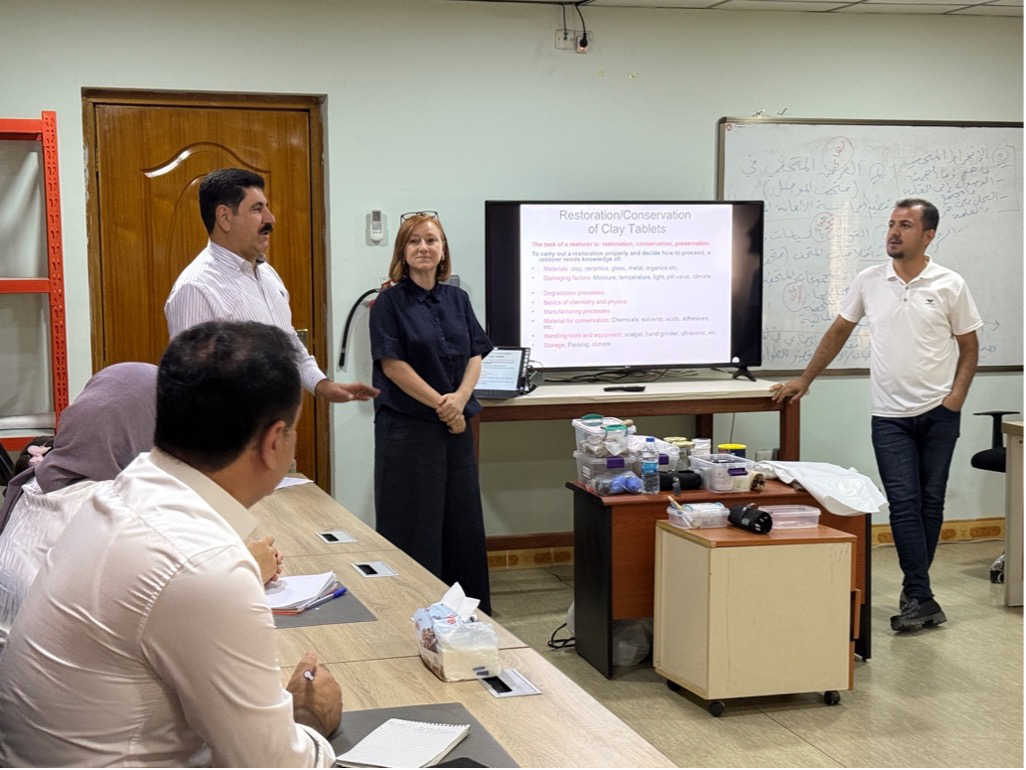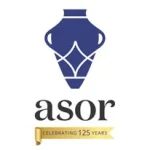
2025 Shepard Urgent Action Grant: Emergency Stabilization of Cuneiform Tablets and Sealings at Kurd Qaburstan: a Conservation Partnership
Tiffany Earley-Spadoni (University of Central Florida)
Unfired clay objects are incredibly fragile and begin to deteriorate rapidly as soon as they are exposed during excavation. Without prompt conservation, newly discovered Middle Bronze Age cuneiform tablets and sealings from Kurd Qaburstan risk permanent damage. This ASOR-affiliated project is led by grantee Tiffany Earley-Spadoni of the University of Central Florida, working in the Kurdistan Region of Iraq.

In summer 2024 and 2025, archaeologists excavating the lower-town palace complex at Kurd Qaburstan, ancient Qabra, uncovered a remarkable group of air-dried cuneiform tablets and sealings dating to the early second millennium BCE. ASOR’s Shepard Urgent Action Grant made it possible to respond immediately, addressing ancient objects in need of immediate care.
Conservator Carmen Gütschow, one of the most experienced professionals working in Iraq today, joined the team in Erbil to lead the conservation efforts. Using scalpels, soft brushes, and magnification, she gently cleaned each object and stabilized its surface with adhesives suited to Iraq’s climate. More than 80 sealings and a group of tablets were successfully treated. In several cases, broken fragments were rejoined with impressive results: inscriptions that had been illegible became clear again. These objects are now being studied by the team’s lead epigrapher, Paul Delnero, and its art historian, Marian Feldman, both of Johns Hopkins University.

The project also prioritized collaboration and training. ASOR funding allowed the Kurd Qaburstan Project to organize a two-day workshop at the Iraqi Institute for the Conservation of Antiquities and Heritage (IICAH), where Gütschow shared her methods with local museum professionals. One memorable moment came when a young visitor, accompanying her parent, was invited to try a simple restoration technique on a practice tablet. Her quiet concentration captured the spirit of the work: careful, hands-on engagement with the past.

Thanks to ASOR’s support, cultural heritage was preserved, conservation skills were shared, and the story of ancient Kurd Qaburstan became a little clearer. The excavators also thank the University of Central Florida College of Arts and Humanities for co-funding the conservation endeavor, and the National Science Foundation for supporting broader research at Kurd Qaburstan.
ASOR will be awarding Shepard Urgent Action Grants in 2026. Read more about the grant program and application process here.
Latest Posts from @ASORResearch
Stay updated with the latest insights, photos, and news by following us on Instagram!
American Society of Overseas Research
The James F. Strange Center
209 Commerce Street
Alexandria, VA 22314
E-mail: info@asor.org
© 2025 ASOR
All rights reserved.
Images licensed under a Creative Commons Attribution-NonCommercial-ShareAlike 4.0 International License

